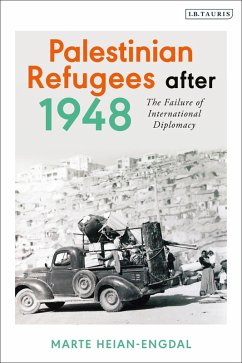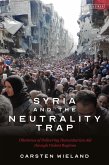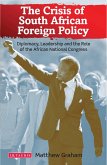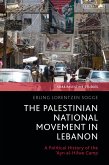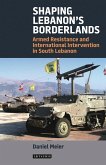After more than seventy years, the Palestinian refugee problem remains unsolved. But if a deal could have been reached involving the repatriation of Palestinian refugees, it was in the early years of the Arab-Israeli conflict. So why didn't this happen?
This book is the first comprehensive study of the international community's earliest efforts to solve the Palestinian refugee problem. Based on a wide range of international primary sources from Israeli, US, UK and UN archives, the book investigates the major proposals between 1948 and 1968 and explains why these failed. It shows that the main actors involved - the Arab states, Israel, the US and the UN - agreed on very little when it came to the Palestinian refugees and therefore never got seriously engaged in finding a solution. This new analysis highlights how the international community gradually moved from viewing the Palestinian refugee problem as a political issue to looking at it as a humanitarian one. It examines the impact of this development and the changes that took place in this formative period of the Arab-Israeli conflict, as well as the limited influence US policy makers had over Israel.
This book is the first comprehensive study of the international community's earliest efforts to solve the Palestinian refugee problem. Based on a wide range of international primary sources from Israeli, US, UK and UN archives, the book investigates the major proposals between 1948 and 1968 and explains why these failed. It shows that the main actors involved - the Arab states, Israel, the US and the UN - agreed on very little when it came to the Palestinian refugees and therefore never got seriously engaged in finding a solution. This new analysis highlights how the international community gradually moved from viewing the Palestinian refugee problem as a political issue to looking at it as a humanitarian one. It examines the impact of this development and the changes that took place in this formative period of the Arab-Israeli conflict, as well as the limited influence US policy makers had over Israel.

